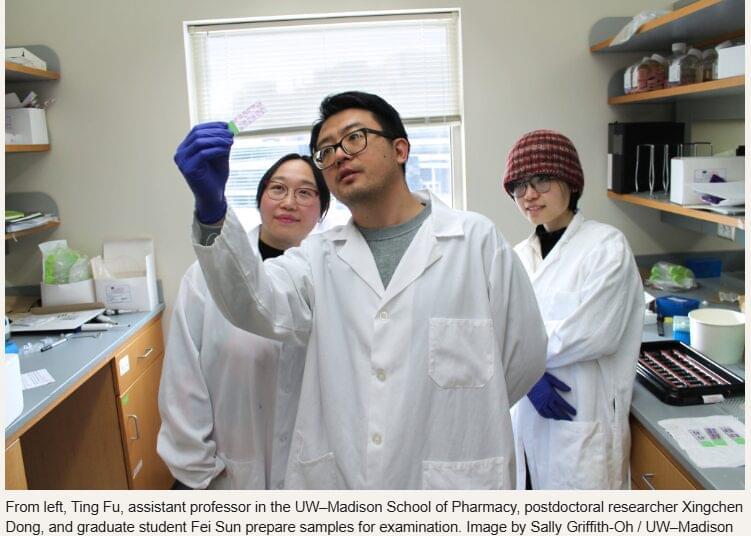Microbes living in our guts help us digest food by reshaping the bile acids that our livers produce for breaking down fats. It turns out that two of these microbially-modified bile acids may affect our risk—in opposite directions—for developing colon cancer.
The link between these bile acids and colon cancer risk was recently uncovered as University of Wisconsin–Madison scientists sought to better understand the relationship between gut microbes and our bodies.
In many ways, that relationship revolves around a specific protein called the farnesoid X receptor, or FXR, which helps maintain a healthy gut through its intimate relationship with bile acids. FXR controls the production of bile acids in the liver, but it also responds in different ways to the presence of various bile acids that microbes have modified.









Could explain why some people are susceptible to cancer.